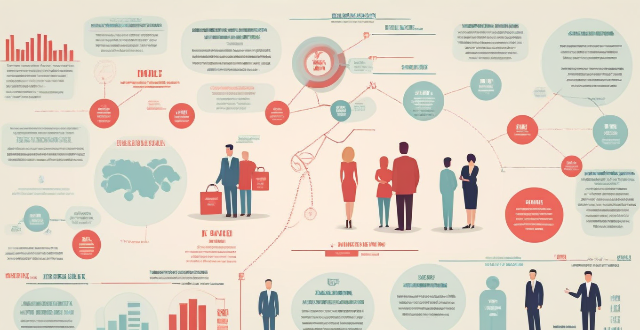Mortgage Benefit

What are the tax benefits of owning a home with a mortgage ?
The tax benefits of owning a home with a mortgage include the ability to deduct mortgage interest, property taxes, and private mortgage insurance premiums. Homeowners may also deduct interest on home equity loans if used for improvements and qualify for energy efficiency tax credits. Additionally, selling a primary residence allows for a capital gains exclusion, and working from home can provide a home office deduction. These benefits are subject to conditions and limitations; consulting a tax professional is recommended to understand their application to individual circumstances.

How does a home equity loan work in relation to my mortgage ?
A home equity loan allows homeowners to borrow against the equity in their property, serving as a second mortgage without requiring refinancing. It offers advantages such as lower interest rates and potential tax deductions but also presents risks like foreclosure and additional debt. Understanding how it works in relation to your primary mortgage is crucial for making an informed financial decision.

Can I pay off my mortgage early without penalty ?
Paying off a mortgage early can save homeowners significant interest, but it's crucial to understand potential prepayment penalties. Mortgages often include clauses that either allow for penalty-free prepayments or impose fees for early payoffs. Homeowners should review their loan agreements, contact lenders for clarification, and assess the financial implications before deciding to pay off their mortgage early. Alternative strategies like refinancing or making smaller extra payments within allowed limits can also be considered to avoid penalties and achieve financial goals.

How does a co-signer affect my mortgage application ?
A co-signer is a person who signs a loan application along with the primary borrower. The co-signer agrees to take on the responsibility of repaying the loan if the primary borrower fails to do so. In this article, we will discuss how a co-signer affects your mortgage application. The credit score of both the primary borrower and the co-signer plays a significant role in determining the eligibility for a mortgage loan. A co-signer with a good credit score can improve the chances of getting approved for a mortgage loan. However, if the co-signer has a poor credit score, it may negatively impact the loan approval process. The income and debt-to-income ratio (DTI) of both the primary borrower and the co-signer are also important factors that lenders consider when evaluating a mortgage application. If the co-signer has a high income and low DTI, it can help strengthen the application and increase the chances of approval. On the other hand, if the co-signer has a low income or high DTI, it may negatively impact the loan approval process. Lenders also consider the employment history of both the primary borrower and the co-signer when evaluating a mortgage application. A stable employment history can demonstrate financial stability and reliability, which can positively impact the loan approval process. If the co-signer has a stable employment history, it can help strengthen the application and increase the chances of approval. The assets and liabilities of both the primary borrower and the co-signer are also taken into consideration by lenders when evaluating a mortgage application. If the co-signer has significant assets and few liabilities, it can help strengthen the application and increase the chances of approval. However, if the co-signer has significant liabilities or limited assets, it may negatively impact the loan approval process. In conclusion, a co-signer can have a significant impact on your mortgage application. Their credit score, income and DTI, employment history, assets, and liabilities are all factors that lenders consider when evaluating a mortgage application. It is important to choose a co-signer who has a good credit score, stable employment history, and low DTI to increase the chances of getting approved for a mortgage loan.

What is the difference between a fixed-rate and adjustable-rate mortgage ?
The text discusses the differences between a fixed-rate and adjustable-rate mortgage. A fixed-rate mortgage has a constant interest rate throughout the loan term, offering stability and predictability in monthly payments. An adjustable-rate mortgage (ARM) has a fluctuating interest rate based on market conditions, with potential savings if rates decrease but also the risk of higher payments if rates increase. The choice between the two depends on personal financial situation, risk tolerance, and long-term goals.

How long does it take to get approved for a mortgage ?
Getting approved for a mortgage is an essential step in the home buying process. The time it takes to get approved can vary depending on several factors, including your financial situation, the type of loan you are applying for, and the lender you choose. In this article, we will discuss the different stages of the mortgage approval process and provide an estimate of how long each stage typically takes. ## Stage 1: Pre-approval Pre-approval is the initial step in the mortgage approval process. During this stage, you will need to submit various documents to your lender, such as pay stubs, tax returns, and bank statements. Your lender will then review your financial information to determine if you qualify for a mortgage and what size loan you can afford. This stage typically takes around 1-3 business days. ### Documents needed for pre-approval: - Pay stubs from the past two months - W2 forms or tax returns from the past two years - Bank statements from the past two months - Credit report ## Stage 2: Underwriting Once you have been pre-approved, your lender will begin the underwriting process. During this stage, your lender will verify the information you provided during pre-approval and ensure that you meet all of their lending requirements. This stage typically takes around 5-7 business days. ### Tasks performed during underwriting: - Verifying employment and income - Checking credit history and scores - Evaluating assets and liabilities - Assessing property value and condition ## Stage 3: Closing If your lender approves your loan application, you will move on to the closing stage. During this stage, you will sign all of the necessary paperwork to finalize your loan. This stage typically takes around 3-5 business days. ### Tasks performed during closing: - Reviewing final loan documents - Signing loan agreements and disclosures - Paying closing costs and fees - Receiving keys to your new home ## Estimated Timeline for Mortgage Approval In summary, the estimated timeline for getting approved for a mortgage is as follows: 1. Pre-approval: 1-3 business days 2. Underwriting: 5-7 business days 3. Closing: 3-5 business days Overall, it typically takes around 9-15 business days to get approved for a mortgage. However, keep in mind that this timeline can vary depending on factors such as your financial situation, the lender you choose, and any potential delays or issues that may arise during the process.

What is private mortgage insurance (PMI) and do I need it ?
Private Mortgage Insurance (PMI) is a type of insurance that protects the lender, not the borrower, in case of default on a mortgage loan. It is typically required when a homebuyer makes a down payment of less than 20% of the home's purchase price. Whether you need PMI depends on factors such as your down payment, credit score, loan-to-value ratio, and type of loan. Consider the cost of PMI and alternatives before deciding to obtain it.

What are the current mortgage rates for first-time homebuyers ?
The text discusses the current mortgage rates for first-time homebuyers, detailing the various types of loans available, such as Federal Housing Administration (FHA) Loans, Conventional Loans, and Adjustable-Rate Mortgages (ARMs), and providing key points for each type. It also offers tips for first-time homebuyers to consider when looking at mortgage rates, including improving credit scores, saving for a down payment, comparing lenders, considering all costs, and consulting a professional. The text emphasizes the importance of shopping around and comparing offers from multiple lenders to find the best rates and terms for individual financial situations.

Can I refinance my mortgage to get a lower interest rate ?
Refinancing a mortgage can lead to lower interest rates and monthly savings, but involves costs like closing fees. Eligibility depends on credit score, equity, and DTI ratio. Consider market conditions and break-even point before deciding. The process includes researching, applying, providing documentation, appraisal, underwriting, closing, and funding. Alternatives include recasting, loan modification, and government programs.

How much down payment do I need to buy a house ?
This article discusses the factors affecting the down payment amount for buying a house, including credit score, type of mortgage, and price of the house. It also provides common down payment requirements for different types of mortgages and tips for saving for a down payment.

Can I get a mortgage with bad credit ?
Getting a mortgage with bad credit is possible but may be more challenging and come with less favorable loan terms. To increase your chances, check your credit score, work on improving it, shop around for lenders, consider alternative options like FHA or VA loans, and be prepared to make a larger down payment.

How do I qualify for a mortgage loan ?
This article provides a detailed guide on how to qualify for a mortgage loan, highlighting key factors that lenders consider such as income, credit score, debt-to-income ratio, employment history, and assets and liabilities. It also outlines steps to take in order to increase chances of success including checking your credit score, calculating your DTI, gathering financial documents, shopping around for lenders, getting pre-approved for a loan, finding a home within budget range, making an offer, and completing the closing process.

What happens if I miss a mortgage payment ?
Missing a mortgage payment can lead to immediate financial penalties, negatively impact your creditworthiness, and put your home at risk in the long term. It's essential to communicate with your lender early and explore all possible options to mitigate the consequences before they spiral out of control.

What is the process of applying for a mortgage ?
The process of applying for a mortgage involves several steps, including determining your budget, checking your credit score, shopping for lenders and loan programs, gathering necessary documents, submitting your application, underwriting and approval, and closing the deal. It's important to carefully review all paperwork and pay closing costs before officially becoming a homeowner.

What are the closing costs associated with a mortgage ?
Closing costs are fees and expenses associated with finalizing a real estate transaction. These costs vary based on location, property type, and lender requirements. Common closing costs for buyers include loan origination fees, appraisal fees, credit report fees, title search and insurance fees, attorney fees, recording fees, prepaid interest, homeowner's insurance premium, property taxes, and other miscellaneous fees. It is important to budget for these expenses in advance and review all closing documents carefully to avoid any financial surprises during the home-buying process.

How can developing countries benefit from implementing renewable energy solutions ?
Renewable energy solutions offer significant benefits for developing countries, including reduced energy costs, job creation, improved health and environmental quality, increased energy security, and climate change mitigation. By investing in renewable energy infrastructure, these countries can build more sustainable and prosperous futures for themselves and their citizens.

How do developing countries benefit from the Clean Development Mechanism (CDM) ?
How Developing Countries Benefit from the Clean Development Mechanism (CDM) The Clean Development Mechanism (CDM) of the Kyoto Protocol brings numerous benefits to developing countries, including technology transfer, sustainable development, and environmental advantages. It also enhances their capacity building, global engagement, and influences policy-making towards sustainability. Overall, the CDM aids in reducing emissions while fostering economic growth and environmental conservation.

What role do sponsors play in sports charity events, and how do they benefit from it ?
The role of sponsors in sports charity events is crucial for the success of these events. Sponsors provide financial support, enhance brand awareness, promote corporate social responsibility, and create networking opportunities. In return, they benefit from increased exposure and brand recognition, building relationships with key stakeholders, potential tax benefits, and measurable results. Overall, sponsoring sports charity events allows companies to contribute to a worthy cause while positioning themselves as responsible corporate citizens committed to making a positive impact on society.

How can we ensure that climate adaptation strategies are equitable and benefit all members of society ?
Ensuring equitable climate adaptation strategies is crucial to protect vulnerable groups and future generations from disproportionate impacts of climate change. Key considerations include recognizing inequalities, involving affected communities in decision-making, fairly distributing costs and benefits, building capacity through education and skills development, mainstreaming equity into policies, and focusing on long-term sustainability.

How does the issuance of green bonds benefit environmental projects ?
Green bonds are financial instruments designed to fund environmentally friendly projects, offering benefits such as increased funding opportunities, improved project visibility, long-term financing, risk mitigation, market growth and innovation, policy and regulatory support, and community and environmental impact. These bonds not only benefit the specific environmental projects they aim to fund but also contribute to a broader shift towards sustainable finance and environmental stewardship.

How does space exploration benefit humanity ?
The benefits of space exploration for humanity include technological advancements, economic growth through job creation and commercial opportunities, global collaboration fostering peace, scientific discoveries about our universe, inspiration and education for future generations, preserving Earth by monitoring environmental changes, and national security measures. These benefits touch every aspect of human life, making space exploration a significant investment in our collective future.

Can rural areas benefit from 5G network deployment ?
The advent of 5G technology promises to revolutionize the way we live, work, and communicate. With its faster speeds, lower latency, and increased capacity, 5G has the potential to transform various sectors, including healthcare, education, transportation, and more. However, the question remains: can rural areas also benefit from 5G network deployment? Benefits of 5G in Rural Areas: - Improved Connectivity: Faster Internet Speeds and Reduced Latency - Enhanced Quality of Service: Better Coverage and Increased Capacity - Economic Development: Job Creation and Business Opportunities - Social Benefits: Education and Healthcare Challenges and Considerations: - Infrastructure Costs: High Initial Investment and Maintenance Expenses - Geographic Barriers: Topography and Population Density - Regulatory Hurdles: Spectrum Allocation and Compatibility Issues Conclusion: While there are certainly challenges associated with deploying 5G networks in rural areas, the potential benefits are significant. Improved connectivity, enhanced quality of service, economic development, and social benefits all stand to gain from the introduction of 5G technology. As long as these challenges are addressed through careful planning, collaboration between stakeholders, and appropriate investment, rural areas can indeed benefit from 5G network deployment.

Can small businesses benefit from Cross-Border Payment ?
Cross-border payments are increasingly vital in the global economy, enabling businesses to tap into new markets. Small businesses can benefit from this trend by expanding market access, increasing revenue potential, improving customer experience, reducing costs, and gaining a competitive advantage. As technology continues to evolve, small businesses should consider taking advantage of cross-border payments to grow and succeed on a global scale.

What industries benefit most from carbon credit systems ?
Carbon credit systems provide financial and competitive advantages to industries that reduce greenhouse gas emissions. Renewable energy producers, energy-efficient manufacturers, carbon capture and storage tech companies, forestry and land use management, and the transportation sector are among the biggest beneficiaries. These industries can earn additional income, attract investment, foster innovation, and gain market share by participating in carbon credit markets, thus contributing to a sustainable future.

How can sports leadership training programs benefit coaches and athletes ?
Sports leadership training programs can greatly benefit coaches and athletes by enhancing their skills and knowledge, leading to improved performance on and off the field. Coaches can improve communication, leadership qualities, motivation techniques, goal setting, and tactical knowledge, while athletes can develop self-confidence, teamwork skills, responsibility, time management, and mental toughness.

How can developing countries benefit from international cooperation ?
Developing countries can benefit from international cooperation in multiple ways, including access to technology and innovation, economic growth and trade opportunities, improved healthcare and education, environmental sustainability, and political stability and peace. Technology transfer, research collaborations, capacity building, trade agreements, foreign direct investment, infrastructure development, medical aid, educational exchange programs, renewable energy projects, conservation efforts, clean technology transfer, conflict resolution, democratic institution building, and legal and judicial reform are some of the key areas where developing countries can gain from working with their international counterparts.

How does exercise benefit employees in the workplace ?
Exercise benefits employees in the workplace by improving health and well-being, increasing productivity, promoting teamwork, and providing long-term business advantages such as lower healthcare costs and higher employee retention.

How can businesses benefit from implementing digital identity solutions ?
Digital identity solutions offer businesses enhanced security, improved customer experiences, increased efficiency, and scalability. They reduce fraud risks, protect data, streamline onboarding, personalize services, automate processes, and provide reliable data for better decision-making. These benefits help businesses stay compliant with regulations, save costs, and adapt to evolving technology.

How do inclusive policies benefit society as a whole ?
Inclusive policies are designed to promote equality, fairness, and social cohesion by eliminating barriers and discrimination. These policies benefit society as a whole by ensuring equal access to resources, services, and opportunities for all individuals regardless of their background, abilities, or circumstances. In addition to promoting equality and fairness, inclusive policies also enhance social cohesion by fostering a sense of belonging and mutual respect among different groups within society. This leads to reduced discrimination, increased tolerance, and strengthened community bonds. Inclusive policies also have positive economic outcomes by expanding the talent pool, reducing poverty, and stimulating consumer spending. Furthermore, these policies foster innovation and creativity by providing diverse perspectives, encouraging risk-taking, and promoting collaboration. Finally, inclusive policies can enhance a country's global competitiveness by attracting talent, improving international relations, and driving economic growth.

How can businesses benefit from investing in Climate-Smart Technologies ?
Businesses can benefit from investing in climate-smart technologies by improving efficiency, reducing costs, gaining a competitive edge, staying compliant with regulations, mitigating risks associated with climate change, and attracting talent.